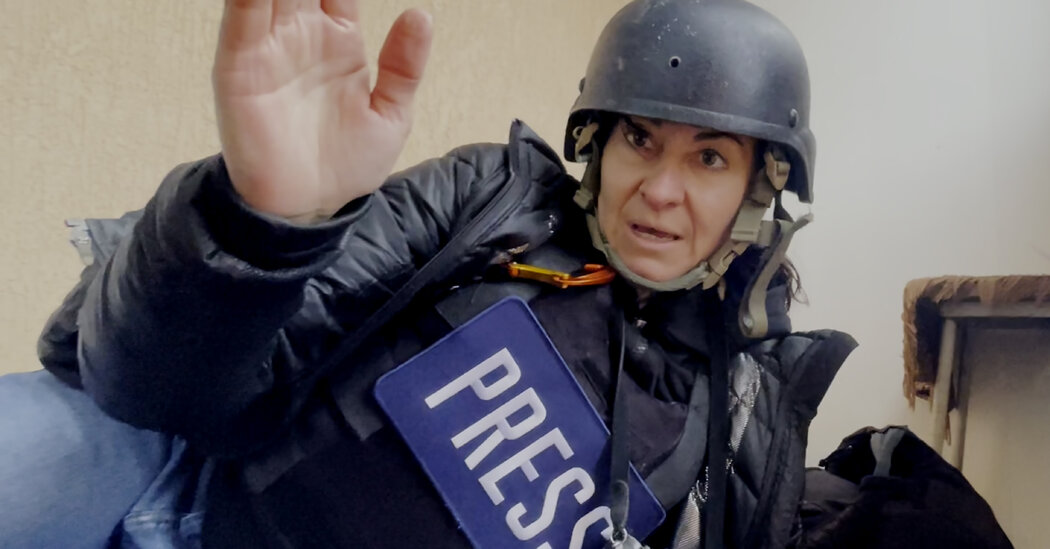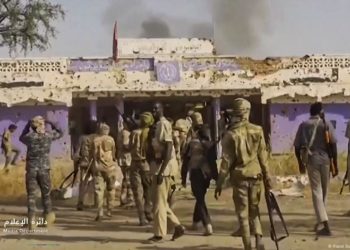“My head is always where I’m not,” the American photojournalist Lynsey Addario confesses in “Love+War,” Chai Vasarhelyi and Jimmy Chin’s fast-charging profile of a woman who chases conflicts abroad while finessing them at home.
Propelled by on-the-ground footage and in-the-moment dialogue, as well as newspaper clips and Addario’s steady narration, the movie is a blur of battle zones — including Ukraine, Africa, Afghanistan, Iraq — and civilian suffering. And after more than two decades of bearing witness in the most volatile places on Earth, Addario seems most alive when under threat of death. Though she has been kidnapped twice, ambushed and tossed from a car, the film is at times too fleet for these events to fully register: How do you cram a life this eventful into 95 minutes?
That’s why its most resonant sections are also its slowest, and most intimate: The young Ukrainian teacher whom Addario followed for a year, who talks about her “really great life” before the Russian invasion; Addario’s failed attempt to save an African woman who has just given birth. This incident, like Addario’s powerful photograph of a Ukrainian family struck by mortar fire, allows the film to touch briefly on the ethics of photographing people in extremis, and on the social and political reverberations of the resulting images.
Between assignments, we follow Addario to her home in London, where her remarkably even-keeled husband, the journalist Paul de Bendern, cares for their two young sons. All are showing the effects of Addario’s sometimes lengthy absences: Even when home, she’s not always fully present. There is, however, no satisfying examination of the family’s stress as the movie skims decorously over marital difficulties before escaping to the next foreign battleground.
By contrast, “Love+War” digs deeply into Addario’s smart strategies to transform a professional liability into an asset. In a field dominated by men, she has used her gender to gain access to women-only spaces, resulting in vivid portraits of, among other issues, maternal death rates in Sierra Leone and the lives of abused women living under Taliban rule in Afghanistan. Talking heads are few, relevant and mostly unmemorable, though I enjoyed the cheery interjections of Addario’s three chatty sisters, whose candid reminiscences lighten the mood of a film that flits in and out of darkness.
Addario herself, though, is always the most compelling voice and the strongest presence. Vasarhelyi and Chin have long been drawn to the excitement and psychology of obsessive, push-the-limits personalities — like the free climber Alex Honnold in “Free Solo” (2018) — for whom calculating risk is a way of life. Addario fits the template; but “Love + War” chooses to go wide rather than deep, resulting in a movie that, while pleasingly dynamic, offers less psychological insight than the photographs she has gambled everything to take. And perhaps that’s as it should be.
Love+War
Rated R for bombs, burns and uncommon bravery. Running time: 1 hour 35 minutes. In theaters.
The post ‘Love+War’ Review: Married to the Job appeared first on New York Times.




